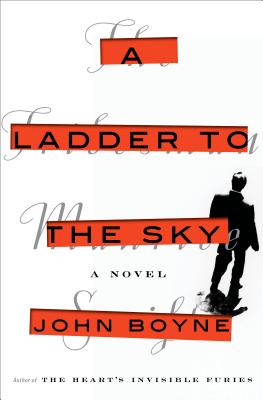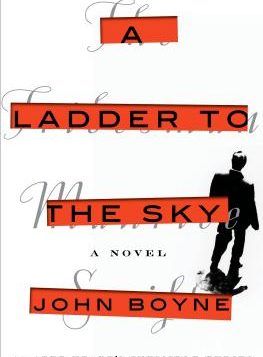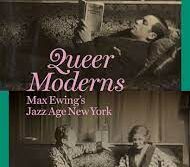 A Ladder to the Sky
A Ladder to the Sky
by John Boyne
Hogarth. 365 pages, $27.
THIS SUSPENSEFUL NOVEL by John Boyne tells a tale about a literary thief. Maurice Swift is an aspiring writer who befriends Eric Ackermann, an older, established author. Over the course of several months, Maurice charms Ackermann into revealing a disturbing secret story from his childhood, then publishes a novel directly based on the revelations, with devastating results. Maurice’s actions only get more shocking, including outright theft of other peoples’ stories and deploying devious means to prevent the victims from revealing the truth. The novel also raises a philosophical question: to whom do our stories belong after we’ve shared them with others?
The narrative is cleverly set up, with the first two sections told from the point of view of the central character’s victims. This device lets readers, while knowing roughly what will happen, see Maurice through the eyes of unsuspecting people as they slowly come to realize their predicament. In the first section, beginning in West Berlin in 1988, Ackermann is drawn to Maurice, who encourages this attraction, expressing deep knowledge of Ackermann’s writings, even a poetry collection that the older man regretted publishing. Maurice inspires feelings in Ackermann that the older man had repressed for decades, leading him to tell Maurice about a terrible incident from his days as a young man living in Germany just before the start of World War II, a love story that ended tragically. Watching Maurice’s machinations as he asks just the right questions and teases the details out of Ackermann is chilling. And the way Maurice treats his mentor once he gets what he wants is heartbreaking, right down to a final, contemptuous question he asks before abandoning the older man.
The second section jumps forward to Norwich, England, in 2000 as Edith begins teaching creative writing at the university while her husband Maurice stays at home grumbling about whether he can write another book. An acclaimed rising novelist, Edith is working on her next novel while also dealing with her sister’s contentious divorce. While Maurice’s behavior raises her suspicions, he allays her concerns until it’s too late. He treats her even worse than he did Ackermann, making disparaging remarks towards her and her students, even assaulting her sexually at one point. The ending to this section is shocking in Maurice’s violence and cunning, adding a frightening twist to Edith’s narration of her story.
The last section, told from Maurice’s perspective, occurs in London during the present, with the washed-up writer spending his days getting drunk in pubs. He meets a young man who wants to write a literary biography and begins a series of interviews with him, hoping to use this opportunity to jump back into the game. Through various means, however, including using literary detection from biographies and magazines, the interviewer slowly gets Maurice to reveal more than he intends, and by the end it becomes clear who is truly using whom.
The book feels like a Patricia Highsmith novel or Alfred Hitchcock film, letting the suspense build and carefully placing clues and details, such as the wobbly bannister that Maurice promises to fix, or the unusual way his interviewer dresses. There are also wonderful glimpses into the contemporary literary world, such as Maurice’s visit with Gore Vidal, who accurately sizes up the young man. There are glimpses into his childhood that help explain his behavior, and with his charm, manipulations, and ambition, Maurice makes for a fascinating character. There are enough twists to keep readers interested, and some surprises that are truly shocking. It is an entertaining look at a literary psychopath who feeds on the life stories of others.
_________________________________________________
Charles Green is a writer based in Annapolis, Maryland.





